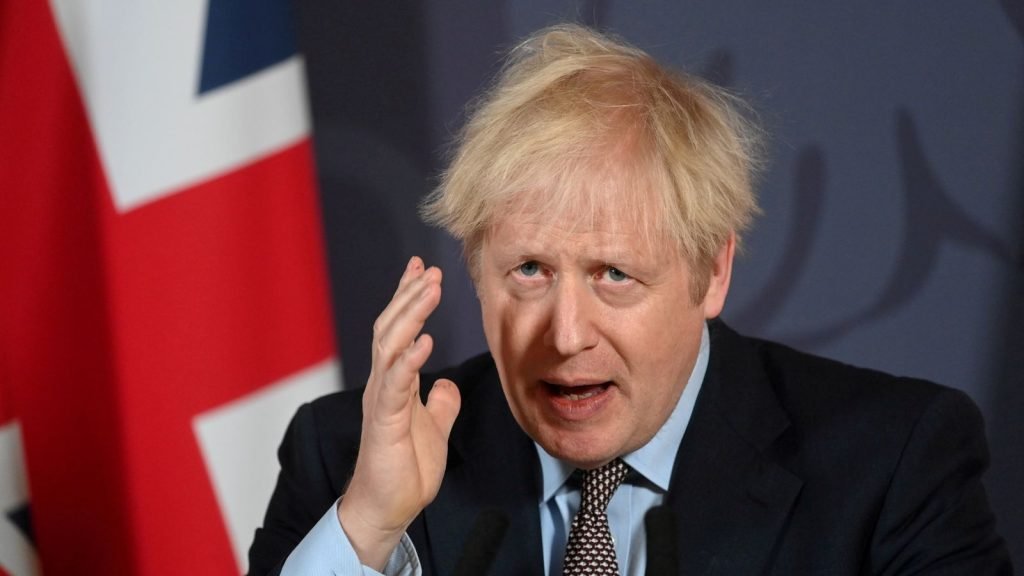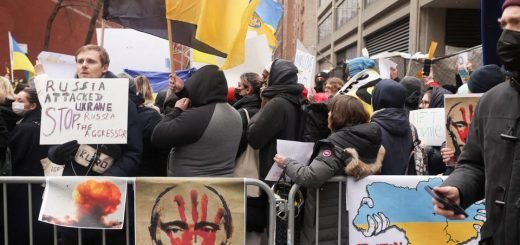Violence Plagues the Streets of Northern Ireland Amidst Sectarian Disputes and Brexit Aversion

Teenagers in Belfast, Ireland have taken over the streets hurling bricks and gasoline bombs at police officers, a conflict that has been going on for weeks now. Cars and buses have been set on fire by the youth belonging to the Loyalist gangs as a sign of protest over the Northern Ireland Protocol of the Brexit agreement.
As a part of the treaty that imposes custom checks in the Irish sea, the Northern Ireland Protocol has created disputes by discriminating against the citizens and causing trade frictions in a region already upset by Brexit. There has been growing disturbance among the citizens ever since the agreement came to be with the general feeling of betrayal looming in the air. The discontent among the population has led to increasing violence and building a breeding ground for paramilitary groups, the Loyalist followers in particular. Adding fuel to the fire was the police’s recent decision not to prosecute senior lawmaker Sinn Fein from the Irish republican party for breaking Covid rules, in order to attend the funeral of high-profile former Irish Republican Army member Bobby Storey, further enraging the Loyalists.
The Troubles and Its Relevance
This comes at a time when the island nation celebrated its 23rd Anniversary of the Good Friday Agreement or the Belfast Agreement of 1998. The nature of the protests, though, not as drastic as The Troubles, presents a reason for great worry witnessing the disruption of peace in the region that was once settled three decades ago. Police Service of Northern Ireland Assistant Chief Constable Jonathan Roberts remarked on the protests in the first week of April saying the chaos, “was at a scale we have not seen in recent years.” Over 60 police officers have been injured, bringing flashbacks of the bloodshed of the 80s. What is extremely unnerving is that out of the rioteers arrested, majority of them are minors, some as young as 13 committing violent crimes and vandalism. These are Protestant Loyalists/Unionists who back in the day supported the British administration during the military takeover (the name loyalist originating from their loyalty to the crown). These trade rules thus feel like betrayal especially after signing the Good Friday Agreement and forming the Northern Ireland Assembly (now disbanded). The UK being a part of the European Union was one of the key reasons for The Troubles to subside and heed way for a negotiation. With the sudden exit of Britain from the EU, adding on to the Border issue, has left the Irish-British citizens in a state of confusion and panic.

President Johnson’s Stance
President Boris Johnson has reassured the British citizens that the Border Poll will not be conducted anytime soon and trade customs will take time to be executed. But the feeling of deception stems from the affirmation Johnson gave during his political rallies that no custom check would be exercised on goods crossing the Irish Sea. Despite these statements, the trade frictions at the border continue to persist since January.
The policy is now being reworked on and Boris has promised that his government is trying to “sandpaper” the protocol into shape. He has also assured that Article 16 will be invoked which allows London or Brussels to temporarily suspend the protocol. But given his history these promises are now branded as ‘disingenuous’ by Alliance Parties and taken with a pinch of salt.

EU On The Way Forward
The EU is set to conduct a vote on 27th April on the post-Brexit Trade deal, part of which is Northern Ireland protocol, covering the special position of the British-owned province. Northern Ireland has been a part of the EU single market for goods to ensure a continued open border with EU member Ireland. The new trade deal however includes potential sanctions, such as restricting market access of the UK including its provinces. With the UK and EU still at odds over this deal, this vote would have a great impact on not just the economies, but the sociopolitical atmosphere of the entire region. Although, London and Brussels have agreed to join forces in dissolving the tensions in Northern Ireland and averting further destruction.


















